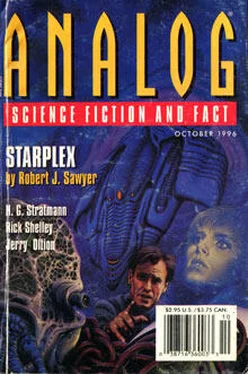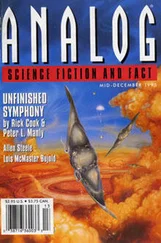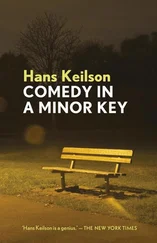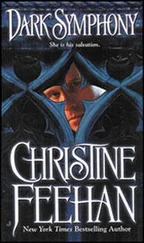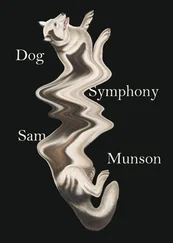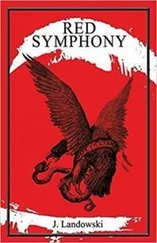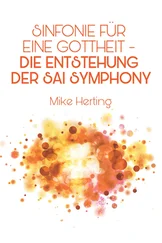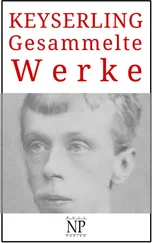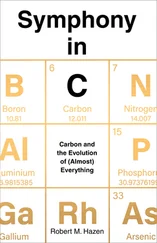H. Symphony in a Minor Key - Symphony in a Minor Key
Здесь есть возможность читать онлайн «H. Symphony in a Minor Key - Symphony in a Minor Key» весь текст электронной книги совершенно бесплатно (целиком полную версию без сокращений). В некоторых случаях можно слушать аудио, скачать через торрент в формате fb2 и присутствует краткое содержание. Год выпуска: 1996, Издательство: Dell Magazines, Жанр: Альтернативная история, на английском языке. Описание произведения, (предисловие) а так же отзывы посетителей доступны на портале библиотеки ЛибКат.
- Название:Symphony in a Minor Key
- Автор:
- Издательство:Dell Magazines
- Жанр:
- Год:1996
- ISBN:нет данных
- Рейтинг книги:5 / 5. Голосов: 1
-
Избранное:Добавить в избранное
- Отзывы:
-
Ваша оценка:
- 100
- 1
- 2
- 3
- 4
- 5
Symphony in a Minor Key: краткое содержание, описание и аннотация
Предлагаем к чтению аннотацию, описание, краткое содержание или предисловие (зависит от того, что написал сам автор книги «Symphony in a Minor Key»). Если вы не нашли необходимую информацию о книге — напишите в комментариях, мы постараемся отыскать её.
Symphony in a Minor Key — читать онлайн бесплатно полную книгу (весь текст) целиком
Ниже представлен текст книги, разбитый по страницам. Система сохранения места последней прочитанной страницы, позволяет с удобством читать онлайн бесплатно книгу «Symphony in a Minor Key», без необходимости каждый раз заново искать на чём Вы остановились. Поставьте закладку, и сможете в любой момент перейти на страницу, на которой закончили чтение.
Интервал:
Закладка:
Robbins said, “Although I appreciate Dr. Brentano’s concerns, as I said before, and as Drs. Everett and Velikovsky have confirmed, the risks seem minimal. And oh, how much we and TCE stand to gain! Genius, whether it is in music or some other field, is a rare and precious thing. Those individuals blessed with such great powers of creativity and original thought are given to the rest of humanity only briefly, but what they do far outlasts their own lifetime. It is tragic when one of them is taken away from us prematurely by an accident of nature, leaving his work undone—the masterpieces he might have created, unfinished, or stillborn. We have the means to correct one of those tragedies. I believe we should do it.”
“Any more comments? No?” The Chancellor continued, “Is there a second for Dr. Robbins’s proposal?”“Seconded!” Lytton and Shimura spoke simultaneously.
“Those in favor of Dr. Robbins’s proposal, raise your hands.”
Robbins’s own arm went up immediately, followed by those of Lytton and Shimura. After some hesitation, Velikovsky’s joined them.
“Opposed?”
Brentano and Billingsley.
“Let the record show that the humanities committee has voted four to two in favor of Dr. Robbins’s proposal.”
For the first time since the meeting started, Robbins relaxed. He’d won! The hardest part—getting the executive, then the science, and now the humanities committee to approve his proposal—was over. The rest should be simple—just go to TCE and do it. Robbins could barely contain his excitement.
Soon he would travel to Vienna in 1825 and save the life of Ludwig van Beethoven.
“Congratulations.”
Robbins sighed. He’d known this was coming.
Antonia had asked to come to his apartment in the staff quarters that evening. “Just to talk,” she’d said. But he knew what she wanted to talk about.
“Thank you,” he replied.
“When are you going?”
“Tomorrow morning.”
“I don’t suppose there’s any way I can talk you out of it?”
“No, there isn’t.”
The muted lights in the apartment cast a lustrous sheen on Antonia’s long brown hair. Though they were both toward the middle of middle-age, unlike his own, her hair was just starting to show a little gray. And as for the rest of her—he knew all too well how heartachingly beautiful she was.
He and Antonia Brentano had been among the first of the humanities staff to come to the Institute. Though different in many ways, they found they both shared a passion for classical music. Acquaintance had turned to friendship, and then they’d discovered something else they shared—loneliness. Neither of them had ever been married, or had any close family. Immersed in his work for so many years, until he met her he hadn’t noticed what was missing from his life.
In retrospect, it was natural that they’d drifted into a brief but intense love affair—and just as natural it should end. They’d soon realized they were both too dedicated to their work to have enough time and energy left for each other. Afterwards, they’d still maintained a cordial, platonic friendship. But now they might lose even that.
They sat on the couch together silently for a while, listening to the music. A large bust of Beethoven frowned at them from atop the Steinway that filled a good part of the living room. Pictures of Robbins’s other favorite composers hung on the walls. The one of J. S. Bach seemed to be smiling in approval at the piece Robbins had selected—the master’s “Concerto in F-sharp minor, for three violins and string orchestra.” Absorbed in the first movement’s intricate counterpoint, it took him a few seconds to realize Antonia was speaking.
“Why, Howard? Why do you have to do this?”
“It’s just like I said at the meeting. I want to allow a genius whose life was cut tragically short to create new works for the benefit of all humanity.”
“Oh, cut the melodrama! If you’re really serious, you have the worse case of hubris I’ve ever seen. Is it an ego thing with you—a way to bask in Beethoven’s reflected glory by being the instrument for his ‘resurrection’? If that isn’t ‘playing God,’ I don’t know what is!”
“But I really mean it! There’s nothing selfish in this!”
The expression on Antonia’s face told him what she thought of that.
“Listen,” he began, “over the last four years my staff and I have traveled to TCE and recovered thousands of scores by the great composers that were lost for one reason or another centuries ago. We knew about some of them from surviving fragments or the incipits—the first few measures of the main theme—in catalogs of their works that the composer or a nearcontemporary compiled.”
“Like, the Kochel catalog for Mozart’s works?”
“Exactly. Since we knew about when those ‘lost’ works were composed, we’ve been able to go back and retrieve them. When we did that, however, we also found many new’ works that nobody knew anything about!”
The concerto had entered its heartrendingly lyrical slow movement, a Largo in A major. “The piece by Bach we re listening to now is one of them—unknown, forgotten for over three centuries until I went to Cothen in 1722 and scanned a copy of the score. By going to TCE we’ve managed to nearly double the amount of his music we had before the Institute was formed!”
“I don’t understand. How did all that music get lost?”
“Several reasons. After Beethoven’s time, we already had nearly all of the music the ‘major’ composers wrote. Unless they destroyed what they considered ‘inferior’ works, like Chopin. Or, if they were very careless with the manuscripts.” Robbins smiled to himself. After rummaging through Schubert’s closet at various times during the mid-1820s, he’d finally found the completed third and fourth movements of the composer’s B minor symphony—the one that used to be known as the “Unfinished.”
“Before Beethoven’s time, however, very little of a composer’s music was published. Mosdy, the scores of their works existed only in a small number of hand written copies, all of which could easily be lost by accident or neglect. Plus, the major composers before Beethoven were very prolific. Bach himself wrote nearly 2,000 works. They wrote so much music it was hard even for them to preserve or keep track of everything they wrote!
“But now my staff and I have become victims of our own success. We’ve managed to recover just about everything those composers wrote. At the rate we re going, soon we may not need to go to TCE anymore.”
“So that’s it!” The anger was back in Antonia’s eyes. “This proposal is just your way to justify staying at the Institute!”
The concerto began its fiery third movement, back in the tonic minor.
“No, that’s not it at all! Till now, all we’ve been doing is acting like scavengers. We’ve been retrieving these lost works for ourselves, we now have them—but the ‘First Law of Contact’ forbids us to give them back to the people of TCE! What I’m going to do will benefit both us and them!
“Lytton understands. Think of all the poets and writers who died ‘before their time’! Like Percy Shelley—drowned at age twenty-nine in a stupid boating accident. Or John Keats, who died at age twenty-six from tuberculosis, something that Harrison could prevent easily. Edward says the first thing he’d do is give Charles Dickens a few more years of life, so he can finish The Mystery of Edwin Drood. The point is, if any of them lived longer on TCE, anything new they created would become part of both our cultural heritage—and theirs!
“And Shimura—his list has van Gogh, and—.”
“All right, all right! I don’t disagree with you about the possible benefits, just the risks.” She glanced at the brooding plaster figure on the piano. “But why Beethoven? Why not someone who died younger—like Mozart? He’d probably live even longer and write more music than Ludwig.”
Читать дальшеИнтервал:
Закладка:
Похожие книги на «Symphony in a Minor Key»
Представляем Вашему вниманию похожие книги на «Symphony in a Minor Key» списком для выбора. Мы отобрали схожую по названию и смыслу литературу в надежде предоставить читателям больше вариантов отыскать новые, интересные, ещё непрочитанные произведения.
Обсуждение, отзывы о книге «Symphony in a Minor Key» и просто собственные мнения читателей. Оставьте ваши комментарии, напишите, что Вы думаете о произведении, его смысле или главных героях. Укажите что конкретно понравилось, а что нет, и почему Вы так считаете.
